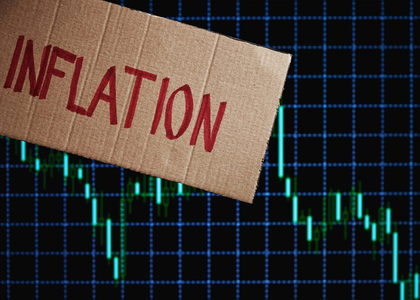Geopolitical tensions, oil prices, inflation data to drive market sentiment next week
By IANS | Updated: June 15, 2025 13:53 IST2025-06-15T13:49:17+5:302025-06-15T13:53:31+5:30
Mumbai, June 15 The coming week is expected to be crucial for Indian stock markets, as global geopolitical ...

Geopolitical tensions, oil prices, inflation data to drive market sentiment next week
Mumbai, June 15 The coming week is expected to be crucial for Indian stock markets, as global geopolitical developments, crude oil prices, the upcoming US Fed policy decision, and key domestic economic data are all set to influence investor sentiment.
One of the biggest factors that could drive global market volatility next week is the ongoing Israel-Iran conflict.
Tensions in the Middle East have already had a visible impact on Indian markets in recent sessions.
The US Federal Reserve will hold its policy meeting on June 17-18. Investors worldwide, including in India, will be closely watching the Fed’s stance on interest rates and inflation, which may influence foreign capital flows.
On the domestic front, India will release its wholesale inflation (WPI) and trade balance data for May on June 16. These numbers are expected to guide near-term market movement.
Last week, Indian equities witnessed a broad-based sell-off, mainly due to global factors.
The benchmark indices Nifty and Sensex closed over 1 per cent lower at 24,718 and 81,118, respectively.
The decline was led by sectors like FMCG, realty, PSU banks, and consumption, which all fell by over 2 per cent.
However, pharma, IT, and media stocks saw some gains, offering partial support to the market.
Foreign institutional investors (FIIs) remained net sellers last week, offloading shares worth Rs 1,246 crore.
In contrast, domestic institutional investors (DIIs) were net buyers, investing Rs 18,637 crore in the cash segment.
According to Bajaj Broking, the Nifty has been consolidating in the 24,400-25,200 range for the past month and is likely to continue in this zone next week as well.
However, if geopolitical tensions escalate further and the index breaks below the lower end of the range, it could test the 24,000 level.
“On the upside, the 25,000 level continues to act as a key resistance. A breakout above this level could potentially signal a pause in the recent downtrend,” the brokerage firm stated.
Disclaimer: This post has been auto-published from an agency feed without any modifications to the text and has not been reviewed by an editor
Open in app